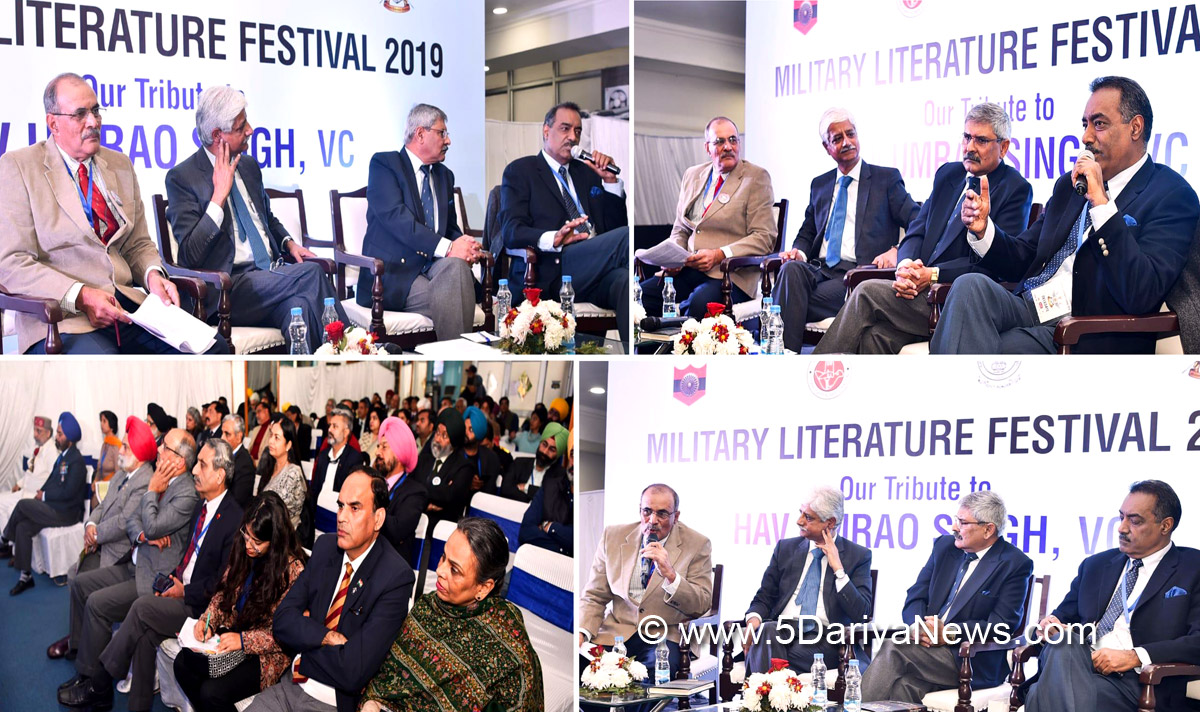

Amanjeet Singh Salyal
amanjeet.singh@htlive.com
Chandigarh : Air Chief Marshall BS Dhanoa (retd) on Saturday said Pakistan was anticipating retaliation after the Pulwama attack in which 40 Central Reserve Police Force (CRPF) personnel died.
“There were only two questions — when does the retaliation take place, and where,” he said in a brainstorming session on ‘Understanding the Message of Balakot’ on the second day of the third Military Literature Festival at the Lake Club, Sector 1, in Chandigarh.
“As per my understanding, the Pakistan air force is not in the inner circle of the Pakistani establishment as they were not aware where the Inter-Services Intelligence (ISI) was running its terror organisation,” said Dhanoa.
“While the well-known Jaish-e-Mohammad (JeM) headquarters in Bahawalpur was adequately protected, the JeM training camp in Balakot was devoid of terminal defences, hence I believe the Pakistan air force was not in the loop,” he said.
He said that Balakot strikes happened because of decisive national leadership and the fact all three armed forces wing were at the ready.
“The government’s political objective is to tell the JeM and Pakistani establishment that such attacks would come at a cost and no matter where you are, be it PoK or Pakistan, and that is the message of Balakot,” Dhanoa said.
The former IAF chief also said that the biggest lesson one could learn from the limited period engagement was that technology matters and Pakistan air force is happy with such kind of engagement over conventional war.
“What about the responsibility of people who were to get this technology and kept negotiating for nearly 10 years to get the MMRCA (Medium Multi-Role Combat Aircraft)? What would have happened in the same engagement had Wing Commander Abhinandan (Varthaman) been flying Rafale aircraft instead of MiG 21-bison?” he asked.
Pointing towards the poor fiscal health of Pakistan, Dhanoa said that in February, the neighbouring country was reeling under severe financial crisis.
An opposing view
The panel saw a heated debate when Christine Fair, an expert on South Asian political and military affairs, questioned the claims regarding the Balakot and its aftermath.
“The lessons of the strike must be empirically studied on the basic facts. Certain claims being made by either side country were far from reality and need to be studied deeply,” said Fair, adding, “It does not matter whether you destroy that camp or not as Pakistan has thousands from an outside point of view. I don’t understand investment in this story because it matters that you sent ordinance in the Pakistani territory.”
Saying that India had lost credibility in the international point of view due to the way certain images were circulated on social media to show the extensive damage which was not there, Fair claimed that no F-16 was shot down either.




















































.jpg)
.jpg)
.jpg)


.jpg)


























































